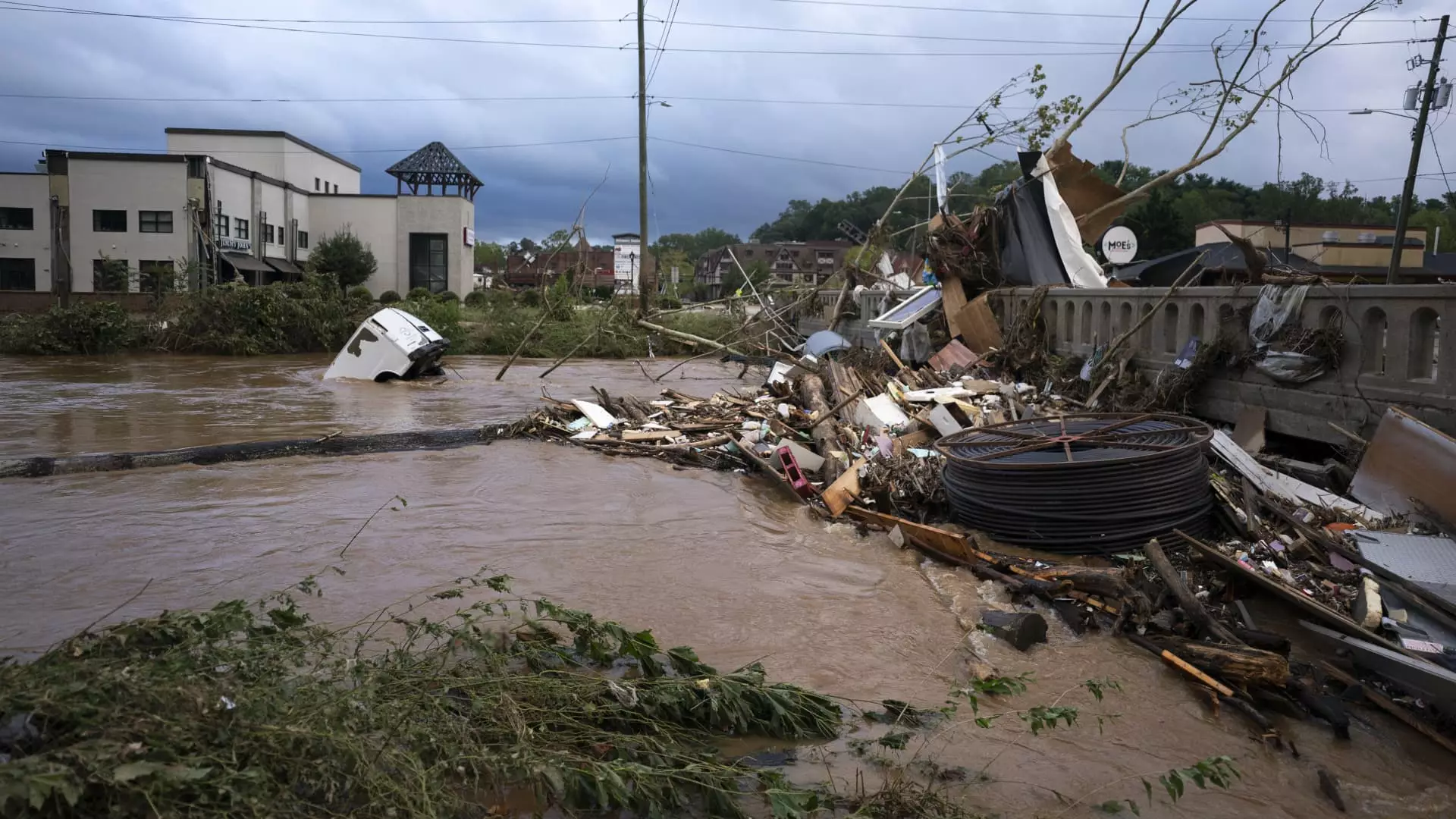The devastation caused by hurricanes can leave communities reeling, with the immediate focus often on recovering from the destruction. However, alongside the physical rebuilding, another critical concern arises for residents: the surge of scams and price gouging that typically follow disasters. Hurricane Helene has highlighted the need for vigilance among affected states as they warn their citizens about these unscrupulous activities.
The Threat of Price Gouging
Price gouging is a well-known phenomenon that tends to emerge during times of crisis, marked by a sharp and excessive increase in the cost of essential goods and services. Attorney General Josh Stein of North Carolina has recently reported a notable rise in complaints related to inflated prices for items such as fuel, groceries, and hotel accommodations. These increases often occur despite state laws designed to prevent such exploitation during declared states of emergency. With over 100 complaints logged, the situation demands immediate attention from consumers and lawmakers alike.
According to Stein, while many businesses strive to support their communities during hard times, a few exploit the circumstances for profit. This duality puts additional pressure on regulatory bodies to ensure fair practices are upheld. The attitudes of local businesses vary: some prioritize community support, while others resort to unethical pricing strategies that can leave residents financially vulnerable in their time of need.
Each state has its own set of laws aimed at countering price gouging, with 37 states enacting anti-price gouging statutes. South Carolina’s Attorney General Alan Wilson emphasizes that while typical market fluctuations are not considered gouging, stark price increases on essential goods signal foul play. For example, a price jump from $5 to $10 for bottled water is a clear indicator of exploitative practices. Experts like Teresa Murray from the U.S. Public Interest Research Group stress the need for vigilance among consumers who may unwittingly encounter price gouging.
While existing laws serve as a protective measure, the reality is that they are often challenging to enforce. Critics of price gouging laws, including political figures such as Vice President Kamala Harris and former President Donald Trump, argue that these regulations could inadvertently disrupt market availability and harm the economy. This contention reveals the complexities surrounding price manipulation and raises questions about how best to balance consumer protection with economic health.
Consumers who suspect they have fallen victim to price gouging are encouraged to approach the businesses in question with their concerns—calmly and respectfully. If businesses remain uncooperative, reporting the incident to the state attorney general provides a necessary avenue for escalation. Evidence, like photographs of goods with their prices, can help consumers substantiate their claims, ensuring that fraudsters are held accountable.
Aside from price gouging, the aftermath of a hurricane presents various scams targeting unsuspecting residents. Fraudsters may impersonate officials from the Federal Emergency Management Agency (FEMA), insurance firms, or other governmental agencies to extract personal and financial information. Therefore, it’s paramount that residents remain cautious and refrain from sharing sensitive details unless they can verify the legitimacy of the request.
Staying Safe from Disaster-Related Scams
In a recovery period often riddled with uncertainty, residents are advised to remain alert for additional scams that may arise post-hurricane. Offers of home repair services from door-to-door salespeople, particularly those insisting on full upfront payments or claiming to cover insurance deductibles, should raise red flags. Homeowners are encouraged to consult their insurance companies prior to committing to any repairs and to thoroughly vet contractors by seeking references and checking for any complaints through the Better Business Bureau.
For those considering vehicle purchases during this time, verifying the history of a car is essential to avoid acquiring flood-damaged property. Resources such as the National Insurance Crime Bureau’s VINCheck and Carfax’s flood check provide valuable asset insights that can protect consumers.
Guarding Against Charity Scams
As communities rally together to assist one another, the increase in charitable donations raises the potential for scams targeting generous contributors. To ensure funds reach legitimate relief efforts, state attorneys general recommend platforms like Give.org or CharityNavigator.org for verifying charities. A little diligence can prevent well-meaning donations from falling into the wrong hands.
As communities begin to heal after Hurricane Helene, the importance of consumer awareness cannot be overstated. By recognizing the signs of price gouging and remaining vigilant against scams, residents can better protect themselves and contribute to a more resilient recovery.

Leave a Reply